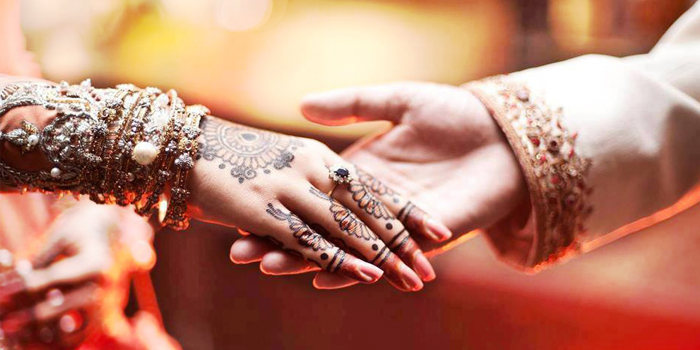In India, a marriage must be registered to make it a legally valid entity. The process of marriage registration ends with the bride and groom being provided with a marriage certificate.
As per the Indian Law, a marriage has to be registered in Registrar office within the respective jurisdiction, under two primary acts – Hindu Marriage Act, 1955 and Special Marriage Act, 1954.
The individuals can either proceed by submitting a joint affidavit to register their marriage or they can opt to submit an individual affidavit requesting registration of their marriage. This also depends on the laws of your state as some states mandate submission of a joint affidavit, while some don’t.
Need For Marriage Registration

Most people, especially of the older generation, rarely came across the need to register their marriages. They would happily get along with their lives once the religious ceremonies surrounding a marriage concludes. However, in the present scenario, obtaining a marriage certificate is vital and must not be seen like acquiring another “license”.
In February 2006, the Supreme Court of India made marriage registration compulsory. When that happened, most people became aware of the reality that, the benefits of registering a marriage outweighs that of not registering it. Here are some of the benefits that follow when you register your marriage-
- Spouse Visa: Unless and until you provide a marriage certificate, no woman will be allowed to add her husband’s name to her passport.
- Foreign travel: Some orthodox countries take offence if a couple is seen together in public. Unless you produce a marriage certificate issued by your country’s Govt, you will find yourself in trouble.
- Prevents child marriage: A practice that still continues to plague our country, child marriage can be kept in check if marriages are registered. As both parties will have to produce proof of age, getting away with child marriage is close to impossible.
- Deters abandonment: If the wife has a legal document claiming that a certain man is her spouse, she can demand provision from him if he chose to leave her. This should deter most men.
Types Of Marriage Registration In India
There are two primary acts under which marriages in India can be registered. They are-
- The Special Marriage Act, 1954
- The Hindu Marriage Act, 1955
Under both the acts, single and joint affidavits can be submitted. The choice would depend on the laws of your state. For any type of registration, you’ll require a standard set of documents. They are-
- The application form
- Proof of Address
- Proof of identity
- Proof of date of birth
- Two passport sized photos of the bride and the groom
- The death certificate of a previous spouse if either party is widowed
- Divorce decree if either party was married before
Marriage Registration Under The Special Marriage Act, 1954
Following are the steps to get your marriage registered under the Special Marriage Act-
- File a notice of intended marriage to the Marriage Registrar of the District in the prescribed format. This notice can only be filed from a place where either parties have resided for a minimum of thirty (30) days.
- The filed notice will then be displayed on the notice board at the Registrar’s office allowing people who object the alliance to come forward.
- Post thirty (30) days of putting up the notice board, if no person has come forth objecting the alliance, the parties will be called forth and their marriage will be solemnised.
- Each party should have three witnesses to sign on behalf of them in the register.
Marriage Registration Under The Hindu Marriage Act, 1955
Here are the steps to get your marriage registered under the Hindu Marriage Act. Please keep in mind, under this act, the marriage must be registered within a month of the wedding.
- The parties should fill out the application form and submit it along with two photos of the marriage ceremony.
- The wedding invitation card must be attached with the submission form.
- Both parties must submit proofs of ID, address and age.
- Each party must sign an affidavit declaring that they do not having any living spouses at the time of the marriage taking place. This affidavit must be notarized.
- Parents/guardians of each party must be present.
- In the presence of three witnesses, both parties must then place their signatures in the register.
Create Your Marriage Affidavit
If you wish to create your own single or joint affidavit to aid with the registration of your marriage, all you need to do is let us know your requirements. Click on the link below to get started!
And if you are a woman planning to change your last name, then it would be worth going through our guide on name change after marriage.

 Request Customized Document
Request Customized Document 